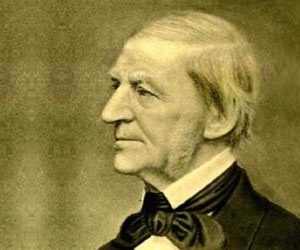17 Mar SUNDAY, MARCH 17, 2024
My daughter has a tattoo quoting Ralph Waldo Emerson that reads, “The years teach much what the days never knew.” The Bible testifies to this eternal truth too: from verse to verse as one page turns to the next. 
The meaning of the quote speaks to the experience of Jesus’ disciples, other New Testament writers, and biblical scholars. It’s true. Sometimes we only learn as things unfold. In the past several weeks we heard multiple examples of Jesus’ disciples remembering things after Jesus died, recalling his words and discovering new previously hidden meanings. The exact words he spoke become puzzle pieces that connect with others. Bit by bit, a scene is taking shape, one which explains Jesus coming to earth, having to die, then leaving to return to his permanent home.
The metaphor of a single grain of wheat having to die and be buried in the ground before it can grow an entire shaft of wheat speaks to the process of transformation over time. It speaks to how one person paying the ultimate sacrifice may allow others to live on. In Ernest Hemingway’s For Whom the Bell Tolls, the main character insists that his companions go on ahead and leave him. There’s no time to bind his broken, almost severed leg before the enemy comes.
He tells the woman he loves, “Thou art all there will be of me.” He knows that by making this final sacrifice, he does good. Many will live on. He accepts his fate peaceably, knowing that he has had “as good a life as any and been lucky, even if he hasn’t lived as long as his grandfather.”
Jesus and Hemingway’s character remind us that none of us are solitary individuals. Though our journeys will end and we’ll fall away, living only through someone’s memory, we will always be part of a much bigger story. Each of our lives is a wheat kernel, a seed planted on earth with anticipation by a God who views our journeys with much excitement, hope and promise.
There is but one caveat. In order for the divine plan to reach the point of harvest, Jesus who is God himself, must first die. Why? Because he alone can make death the pathway to eternal life.
Especially in the spring, we see signs of death that lead to life. If we notice dead stems above ground bare and white, then aim our eyes near the soil, there’s new green growth poking through. Nature continually forces us to remain conscious of this fact: Everything on earth shares a parallel journey, a journey with a beginning and an end. 
Nothing Jesus aimed to do was accomplished by a single act. The end goal entailed concerted efforts over time. Every life is an ongoing process that cannot be judged until fully complete. And completion isn’t even accomplished once death occurs, but afterward. For death is but a stepping stone.
It must occur to make the next thing possible. Resurrection happens after lying in a grave and even that’s not the end. Assumption into heaven comes next. Jesus’ journey parallels our own. One day we’ll go where he is to a place prepared for us before time itself comes to pass.
Jesus is the ultimate time traveler. He comes to earth as a fulfillment of the past who is also able to describe the future. He sees all and knows all. He shares a perspective of history unbound by time enlightened by the future. And in the future, Christianity would include non-Jews.
The subject of the first sentence, “some Greeks” does not necessarily refer to people from the country of Greece. According to the ESV Study Bible, “Greeks refers to Gentiles, people who are ‘God-fearers’, non-Jews who had come to Jerusalem to worship during the Jewish festival of Passover.
How about that? Even in Jesus’ time without the benefit of missionaries or evangelists, people not born into the Hebrew culture became persuaded enough to feel compelled to acknowledge God and offer worship. That’s exactly what being a chosen people who are set apart means. The surrounding culture will be influenced by the witness of God’s people. Their daily behavior and lifestyle choices will serve as living testimony.
One great consolation from today’s gospel reading is this: Nothing will happen until the hour comes and time is fulfilled. Then everything once hoped for will be accomplished. Time belongs to God and is in his hands. We may not like how time is allotted, that some people and things are given more than others, but there will always be a purpose to whatever time is given.
When some Greeks who had gone to Jerusalem found one of Jesus’ disciples named Philip they said, “We wish to see Jesus.” You think we’ve got conspiracy theories circulating nowadays? In Jesus’ time there were actual conspiracies and plots unfolding all at once.
There was a plan being hatched by Jewish authorities to kill Lazarus before they killed Jesus. People who heard about Lazarus began to follow him and Jesus. So it was wise of Philip to go tell Andrew and then for the two of them to go tell Jesus.
Jesus’ ability to discern people’s intentions had made his disciples wary. They knew that in Jesus, there was no controversy. He plainly answered questions regardless of who was asking, disciples, Jews or non-Jews. He said, “The hour has come for the Son of Man to be glorified. Very truly, I tell you, unless a grain of wheat falls into the earth and dies, it remains just a single grain; but if it dies, it bears much fruit.”
What happens through the dying process is not only transformational, it’s a multiplier of singularity. Persons become more than who they ever once were. Their legacy becomes greater, their influence stronger. Burying a single grain of wheat with hopes of gaining many more is a paradox that makes little sense until you know it’s true and that it really works.
This is the paradox of what Jesus says next. “Those who love their life lose it, and those who hate their life will keep it for eternity.” What? Well, let’s look at it this way. Are you willing to risk losing what you love or do you love it so much, you’ll do anything to keep it? Jesus didn’t really mean love or hate in the literal sense, but meant that we are to put life in perspective to a relationship with God.
Being human, Jesus experienced the same kind of anxiety as any human being. Even though he knew the exact hour, when it came he must have been full of dread and uncertainty. Advanced knowledge isn’t horrible if it helps you get used to an idea and fantasize about getting through it.
But knowing in advance can provoke anxiety for other reasons. For days leading up to the scheduled hour, you try and put what’s ahead out of your mind. You console yourself knowing that the time has not yet come. You’re confident that nothing will happen until that day. You worry as the fullness of the plan, the reality of what will be must be fully accepted.
Jesus said,“Now my soul is troubled.” How assuring to know that God himself experienced a troubled soul. He contemplates saying,”Father, save me from this hour,” and then reconsiders. “No, it is for this reason that I have come to this very hour.”
He regains a measure of confidence, enough courage and determination to say, “Father, glorify your name.” In the moment, he finds strength to give consent, to sign off on the operation that will separate him from those on earth he loves and who love him. He is braver than ever before by remembering what he came to accomplish, why he lived each day fully until this very hour came. He shows up for his date with destiny, his moment of chosen fate.
How could Jesus comply? Well it wasn’t just because he was fully God and fully human. It was because understood the plan, as well as who he was. He knew his purpose, both in life and death. He knew what he had accomplished in life and was about to accomplish in death.
A voice from heaven said, “I have glorified your life, Son, and I will glorify it again.” And Jesus believed his Father’s voice from heaven, though the crowd heard it as thunder. This week a patient shared that she had been declared dead several times.
As she described each time in detail, she displayed no fear. She had been assured by audible voices and the presence of loved ones. That’s why I found it funny to hear her say, “I know, it could’ve been a lack of blood or oxygen to my brain. People have me almost convinced that what I saw and heard may have originated in me.”
I said, “What difference does it make? Even if what you saw and heard was manufactured by your brain, why of all things would you doubt the loving message, the words and feelings of comfort offered? How often might we misinterpret the voice or presence of God as some “naturally occurring” event like the crowd? They heard the voice of God and said it was thunder.
Even when others said, “An angel has spoken to him,” they did not realize that the voice had come for their sake, not his. That’s why Jesus made the message plain and clear. “This voice which you attribute to thunder or an angel has in fact come for your sake, to encourage you, not me.”
The next verse really excites me. Jesus said, “Now is the judgment of this world; now the ruler of this world will be driven out.” That means that the work of the cross was accomplished. Judgment of this world took place that day and in that very hour the ruler of this world, the devil, was driven out.”
“The years teach what the days never knew.” No one present that day knew that evil was defeated when Jesus was lifted up on the cross, or that the effect would draw all people to himself. The Bible says, that was not only an indication of the way he would die, but of what his death would accomplish. “The years teach what the days never knew.” Let us pray.
Dear Lord, losing your life saved ours. Not loving your earthly life more than you loved God’s will and God’s plan is what God the Father rewarded. It’s what bought you the honor and glory you deserve. It’s what elevates you from the mere title of anointed one or Messiah, to Jesus, Son of God, our Lord and Savior.
How might we ever become inspired to make such a sacrifice of our lives? Console us with knowing that we serve and follow you as best we can. Help us overcome the fear and anxiety of pain, suffering or doing without. Prepare us for when our hour comes and our time is fulfilled. In your holy name we pray, Amen.


